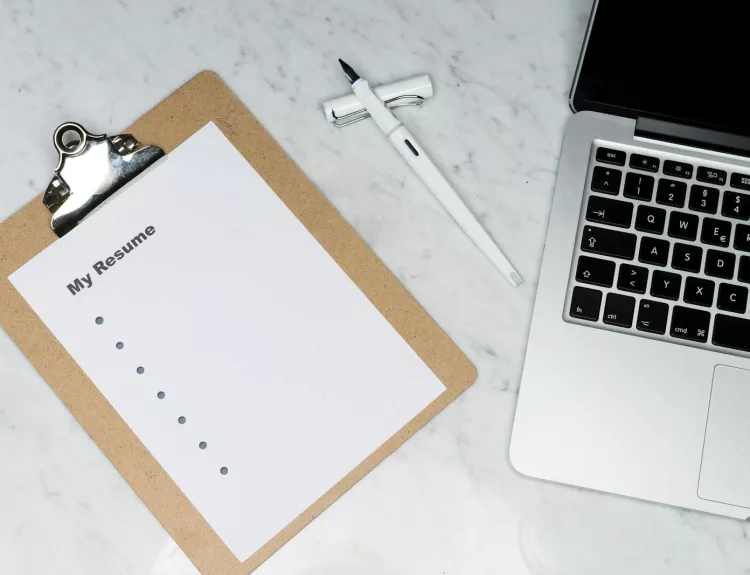Interviews can be daunting at the best of times. Even more so if you’re being interviewed in English, but it isn’t your first language. Taking the time to prepare and practice is key – as your confidence grows, so will your performance. In this article, we’ll share some top tips for non-native English speakers to perform a winning interview.
Prepare and Research
While it might sound like a basic, taking the time to properly prepare and research the company you’re interviewing with is fundamental. This can be an important opportunity to understand more about their culture, and how best to pitch yourself. For example, some companies will value a more formal approach, while others will be interested in spending some time talking about your hobbies and interests.
This can be an important way of deciding what vocabulary you’d like to focus on. Also consider strategies such as checking out their company Glassdoor. Here, people will often share their interview experiences with the company, and even the questions they were asked. This can be a really useful way to prepare for your interview.
Perfect your Examples
Using strong examples during interviews to demonstrate why you’re a great fit is essential. And the better you’re able to evidence these examples, the more impressive they’ll sound. When considering top interview tips for non-native English speakers, taking the time to think about strong examples is crucial!
Perhaps you’ve been successful at exceeding sales targets, or maybe you’re particularly proud of a certain project or initiative you’ve worked on.
Once you have your examples, take the time to plan how you will talk about these during the interview. It can be helpful to use strategies such as the S.T.A.R technique.
This stands for Situation, Task, Action, Result. In basic terms, think of a problem you’ve previously dealt with at work, then explain what you did to tackle this, and what the end result was. For example:
“Each day I was interacting with our clients. I noticed that many of them were asking about a specific product feature. I checked our knowledgebase and saw that we didn’t have any articles explaining how the feature worked. In response, I wrote an in-depth support article, including a video guide. This resulted in clients being able to quickly access the information they needed, boosting their satisfaction and reducing the pressure on our customer support team”
Using an example like this allows you to successfully explain what the problem was, how you fixed it, and what the result was.
Practice
Once you’ve taken the time to find out more about the company, and explored possible interview questions and answers, it’s time to start practicing! This can feel challenging, but it’s the best way of preparing for your interview. If you don’t have anyone to practice with, consider recording your answers so you can watch them back. You can then use these recordings to identify any areas you might like to work on in more detail.
Alternatively, consider writing down some bullet points for each question. Focus on the areas you’d like to highlight in your answers, and think about how you’d explain these. Take time to make sure your answers are straightforward and easy to understand.
If possible, it can be really useful to practice your interview skills with someone. If it’s going to be a remote interview, you don’t even need to worry about finding someone who can meet up in person! Consider any friends or contacts in your network who’d be happy to help and jump on a call.
While practicing and improving your skills, also pay attention to how clear and easy to understand your answers are. Try to keep your responses short and to the point – it’s important to explain things clearly and with enough detail, but avoid overly long or confusing answers.
Remote Wins offers interview practice sessions. These will give you the opportunity to practice your interview skills. You’ll be able to benefit from live feedback and tips to help you grow in confidence and succeed in your interview. Sessions can also be tailored to support you if you’d like to improve your English speaking confidence.
Focus on Listening Skills
If you know who is going to be interviewing you, it can be helpful to research them beforehand. Take the time to check-out their LinkedIn profile and see where they’re from. If their accent is a little different to what you’re used to, take the time to prepare.
For example, it might be that you feel more confident understanding an American English accent, but your interviewer is from Australia. Take the time to watch some videos, or listen to some podcasts which feature speakers who have this accent so it becomes more familiar to you.
Also remember that it’s okay to ask the interviewer to repeat a question if you didn’t understand it. It’s also absolutely fine to confirm whether you heard correctly, by repeating the question back. It’s far better taking the time to do this than to risk providing an answer that’s irrelevant, or shows a lack of understanding.
Be Realistic
This can be a difficult one – but it’s really important. Before applying for a role in English, take the time to honestly evaluate your language skills. It’s great to be ambitious, but consider whether or not you do feel you’re at the right level to be apply.
You might decide to ask friends or colleagues how they’d evaluate your English level, or perhaps consider taking some business English classes to improve your confidence and preparation.
And why is this crucial? Well, if a recruiter or hiring manager has a call with you, and they don’t believe your English it at the level it needs to be, they won’t be able to put you through to the next stage, regardless of your technical skills.
Additionally, they may leave an internal note mentioning this is why you were declined for a position. This could mean if you reapply for a role with the same company at a future date, you might be automatically rejected. It’s worth trying to avoid being placed in this position, and negatively impacting future prospects.
Get Feedback
Of course, it’s always important to get feedback. If you’re not successful in landing the role you were hoping for, don’t give up! Ask your recruiter for feedback, and find out if there are any areas you should focus on.
Likewise, if you’re currently taking any English courses, make sure to let your tutor know what your ambitions are and to ask for their support!
Do you have an interview in English coming up? I’d love to hear your interview tips for non-native English speakers! Feel free to comment below!
You can also check out our latest articles here.










1 Comment
How to Prepare for a Remote Interview » Remote Wins
5 months ago[…] if you’re a non-native English speaker, check out this article for some of our top tips to […]